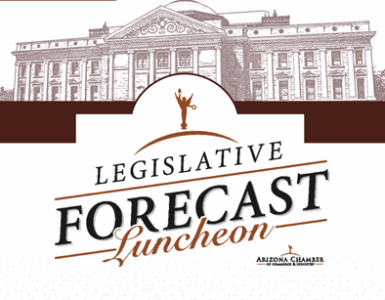Federal lifelines from the federal CARES Act are not only aiding small businesses and individuals in Arizona to survive the pandemic, they are helping schools navigate new challenges, as well.
In total, Arizona will collect $1.8 billion from the CARES Act. Of that, education is receiving an estimated $626 million.
That relief has been “critical” for keeping students educated and safe as schools statewide cope with the financial realities of COVID-19, said Arizona Superintendent of Public Instruction Kathy Hoffman.

“Schools have incurred significant costs including providing necessary technology for distance learning, purchasing additional PPE, and implementing new mitigation measures to prevent the spread of COVID-19,” Hoffman said.
No state budget cuts to education
As other states are facing cuts in education because of the costs related to COVID-19, Arizona is not. One reason is Gov. Doug Ducey and the state Legislature’s previous work to budget for a $1 billion rainy day fund, which has proven critical for safeguarding education during the health crisis.
Arizona’s booming economy prior to the pandemic outbreak is also a factor, local economists said. Add in donations, in-kind contributions and grants from businesses, municipalities and philanthropic organizations, and Arizona schools are better prepared than much of the nation to weather the pandemic.

“A well-resourced rainy day fund, a prudent and carefully planned strategy for Arizona’s CARES Act allocation, and a regulatory and tax environment that encourages job creation have positioned Arizona well,” said Garrick Taylor, executive vice president for the Arizona Chamber of Commerce and Industry.
Biggest expense for education: transition to digital learning
When the pandemic struck in March, schools and colleges had to turn on a dime to provide remote learning for more than 1.5 million K-12 and college and university students.
That has proven to be a costly and exhausting endeavor for schools statewide, said Jake Logan, president and CEO of the Arizona Charter Schools Association.

“Everything happened really fast when schools pivoted to that remote learning model to make sure learning was not disrupted,” he said.
One major expense for charter and district schools has been ensuring that low-income students and students in rural and tribal areas have computers and an internet connection, Logan said.
CARES Act funding and donations from the private and public sectors have helped those students stay connected, Logan said.
“I’m really proud of the education community — and I include the governor and Superintendent Hoffman — because they have made students a priority and really worked hard to make sure learning wasn’t disrupted, considering the situation.”
How Arizona is using CARES Act funds
To date, approximately $1.4 billion of Arizona’s allocation of $1.8 billion in CARES Act funding has been obligated for a wide range of programs to assist residents, employees, businesses and schools.
CARES Act programs directly benefiting schools include the Paycheck Protection Program, the Elementary and Secondary School Emergency Relief Fund and the Governor’s Emergency Education Relief Fund.
In all, Arizona is projected to receive more than $626 million in funding for K-12 district and charter schools, colleges and universities. A total of $370 million comes from the Education Relief Fund to support K-12 schools districts and charter schools struggling with the added costs.
Other vital sectors in Arizona benefiting from CARES Act include:
- Cities, towns and counties: $441 million
- Public assistance: $150 million
- State public health and safety: $397 million
- Arizona Department of Health Services: $64.4 million
Financial challenges ahead
While Arizona is better off than much of the nation, education will continue to face additional costs from COVID-19, Superintendent Hoffman said.
Hoffman and 28 organizations including the Arizona Association of School Business Officials, Arizona Charter Schools Association, Arizona Education Association, Arizona Rural Schools Association and Arizona School Administrators Association have asked the state’s congressional delegation for continued support for schools.
“In the face of a global pandemic Arizona schools and educators continue to be a beacon of hope for our communities. In addition to providing vital nutrition services, schools are working overtime to meet the academic, social, and emotional needs of students,” Superintendent Hoffman said. “Schools will need ongoing resources in order to provide the critical support families in Arizona rely on.”
















Add comment